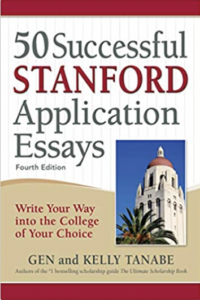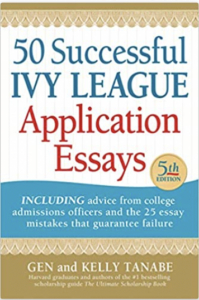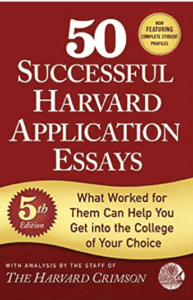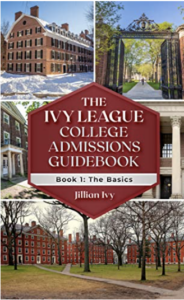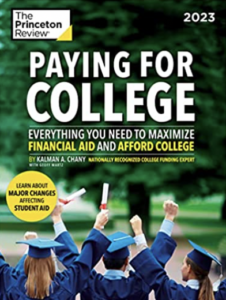The College Admissions Activity List
The College Admissions Activity List:
Your college admissions activity list is a crucial component of your college application — especially if you’re applying for the Ivy League. It provides admissions officers with a comprehensive overview of your extracurricular involvement and accomplishments, offering them insight into your character, interests, and potential contributions to their institution. Creating a compelling and well-structured activity list can set you apart from the competition and help you secure a spot at your dream school. In this article, I’ll guide you through the process of crafting an effective college admissions activity list.
Step 1: Start Early
The process of preparing your college admissions activity list should begin well in advance. By starting early, you’ll have the opportunity to engage in a wide variety of activities and document your achievements and experiences over time. This will help you paint a more comprehensive picture of yourself as a well-rounded and dedicated individual.
Step 2: Be Selective
Admissions officers aren’t looking for quantity; they’re looking for quality. It’s better to list a few significant activities with meaningful involvement rather than a long list of superficial engagements. Choose activities that you are genuinely passionate about and that demonstrate your skills, leadership, and character. The more unique the activity the BETTER as this will make you stand out.
Every good student will have “National Honor Society” or “Beta Club” on their list of clubs, and that is just going to make you one of many. Better instead to list more unusual and unique activities whenever possible.
Step 3: Prioritize Involvement
When listing your activities, prioritize your level of involvement and commitment. Include information about any leadership positions, awards, or honors you received within each activity. Admissions officers want to see that you’ve made a meaningful impact and taken on responsibilities in the activities you’re passionate about.
Step 4: Show Diversity
Your activity list should showcase a diverse range of interests and talents. Include activities related to your academic interests, community service, sports, arts, or any other area where you have excelled or shown dedication. Demonstrating your versatility can be a strong selling point in your application.
Step 5: Quantify Your Achievements
Wherever possible, use concrete data to quantify your achievements. Instead of simply stating that you volunteered at a local animal shelter, say that you volunteered for 100 hours over the course of a year, demonstrating your commitment and dedication.
Step 6: Highlight Personal Growth
Don’t forget to describe how each activity has contributed to your personal growth and development. Admissions officers are interested in understanding how your experiences have shaped your character and prepared you for the challenges of college.
Step 7: Be Honest and Accurate
While it’s essential to present your activities in the best light possible, it’s equally important to be honest and accurate. Exaggerating or misrepresenting your involvement can harm your credibility and chances of admission. Stay true to your experiences and achievements.
Step 8: Seek Feedback
It’s a great idea to seek feedback from teachers, mentors, or college counselors when crafting your activity list. They can provide valuable insights and help you refine your descriptions to make them more compelling.
Step 9: Organize Effectively
When presenting your activities, organize them in a clear and structured manner. Consider using bullet points or short paragraphs for each activity, making it easy for admissions officers to skim through and grasp the key details.
Step 10: Proofread Carefully
Lastly, ensure that your activity list is free of spelling and grammatical errors. Attention to detail matters, and a polished list reflects your commitment and professionalism.
In conclusion, your college admissions activity list is a vital part of your application, providing admissions officers with a snapshot of your interests, accomplishments, and character. By following the steps outlined in this article, you can craft a compelling and well-organized list that effectively communicates your unique qualities and strengths.
Remember that your college application should reflect your authentic self, so choose activities that genuinely resonate with you. Be passionate, committed, and honest in your descriptions, and you’ll be well on your way to making a strong impression on the admissions committee.
Want more help with your college essays and application? Applying to a top school this year, or maybe you have your eyes set on the Ivy League? I invite you to explore more tips and strategies for creating a standout college application on my website, www.IvyCollegeEssay.com. As a former Harvard admissions interviewer and Harvard grad, I’m here to support you in your college journey and help you present your best self to the admissions officers at the very top schools.
Contact me for a free consultation today, and get into the school of your dreams!
For expert guidance on your Ivy League college applications and personalized assistance, contact me at IvyCollegeEssay.com. I am committed to helping you stand out among applicants and achieve your dream of attending an Ivy League college.
Contact me for a free consultation TODAY and take the first step towards achieving the school of your dreams!
RELATED POSTS:





